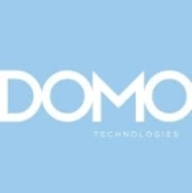

Domo and Equalum are both competitors in the data integration and business intelligence platform category. Domo stands out in ease of use and visualization capabilities, while Equalum offers superior data ingestion and processing features.
Features: Domo's platform is designed for non-technical users with drag-and-drop ETL tools like Magic ETL, intuitive dashboards, and extensive data connectivity with pre-built connectors. It excels in simplifying complex data management. Equalum provides strong CDC replication, streaming ETL, and batch ETL capabilities with technologies like Kafka and Spark, delivering high-performance, real-time data processing with a no-code UI.
Room for Improvement: Domo users seek better data integration, more charting options, and enhanced ETL for large datasets, along with improved tech support and error handling. Equalum's areas for development include better documentation, expanded connectivity, integration with other vendor solutions, and scheduling features.
Ease of Deployment and Customer Service: Domo supports diverse deployment options, including cloud and on-premises, but users report mixed experiences with customer service and tech support. Equalum also offers flexible deployment options and is noted for responsive customer service, though technical support may sometimes lag during initial setups.
Pricing and ROI: Domo offers flexible licensing models, though it is perceived as pricier than some competitors. Users find value in its features leading to significant ROI by optimizing operations. Equalum's pricing is also high but deemed justifiable due to advanced capabilities that enhance efficiency and performance, providing clear ROI for businesses requiring those capabilities.
| Product | Market Share (%) |
|---|---|
| Domo | 0.7% |
| Equalum | 0.4% |
| Other | 98.9% |

| Company Size | Count |
|---|---|
| Small Business | 16 |
| Midsize Enterprise | 11 |
| Large Enterprise | 20 |
| Company Size | Count |
|---|---|
| Small Business | 2 |
| Midsize Enterprise | 1 |
| Large Enterprise | 4 |
Domo is a cloud-based, mobile-first BI platform that helps companies drive more value from their data by helping organizations better integrate, interpret and use data to drive timely decision making and action across the business. The Domo platform enhances existing data warehouse and BI tools and allows users to build custom apps, automate data pipelines, and make data science accessible for anyone through automated insights that can be shared with internal or external stakeholders.
Find more information on The Business Cloud Here.
Equalum is a fully-managed, end-to-end data integration and real-time data streaming platform, powered by industry-leading change data capture (CDC) tech and modern data transformation capabilities (streaming ETL and ELT). Equalum's enterprise-grade platform features intuitive UI allowing you to build robust, real-time data pipelines in minutes.
We monitor all Data Integration reviews to prevent fraudulent reviews and keep review quality high. We do not post reviews by company employees or direct competitors. We validate each review for authenticity via cross-reference with LinkedIn, and personal follow-up with the reviewer when necessary.